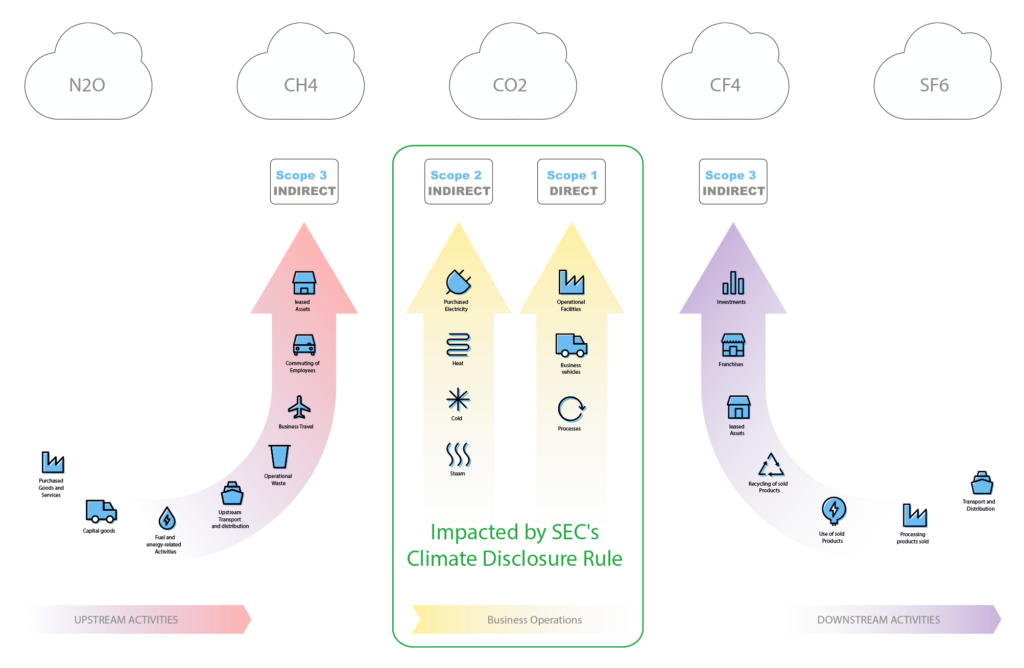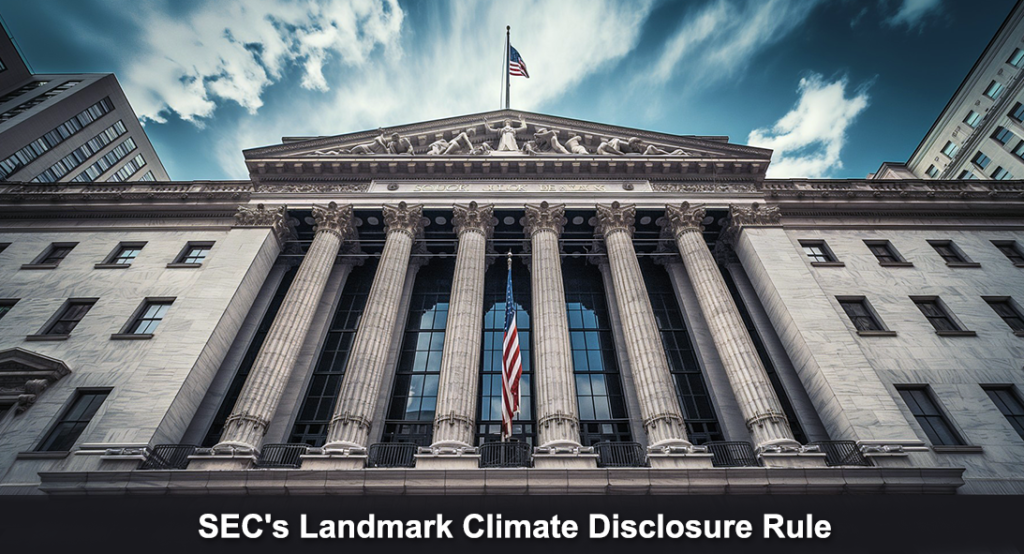The U.S. Securities and Exchange Commission (SEC) has enacted groundbreaking rules requiring companies to disclose detailed climate-related information in their filings. Initiated on March 6, 2024, these rules aim to improve transparency and investor knowledge regarding climate risks and their potential impact on businesses. Companies must now report on material climate risks, their mitigation and adaptation strategies, and the roles of their boards and management in managing these risks. A notable aspect of the rules is the mandatory disclosure of Scope 1 and/or Scope 2 greenhouse gas emissions for larger registrants, with a phased-in compliance period.
Key Points
- Registrants must disclose material climate-related risks and their implications on business strategy and financial performance.
- The rules introduce phased-in disclosure of Scope 1 and/or Scope 2 emissions for larger registrants, accompanied by attestation reports for these disclosures.
- The ruling marks a significant overhaul of U.S. corporate reporting and emphasizes the SEC’s legacy under Chair Gary Gensler.
This regulatory move marks a significant overhaul in U.S. corporate reporting, aligning with SEC Chair Gary Gensler’s vision. It follows a two-year advocacy campaign that has seen considerable debate and division in political and business circles. Despite modifications from the original proposal, including a reduction in the breadth of disclosures, the rule represents a significant step forward in disclosing corporate climate risks and impacts.
However, the rule faces opposition, with legal challenges planned by several Republican-led states and potential litigation from the U.S. Chamber of Commerce. The scaled-back rule, mainly excluding Scope 3 emissions disclosures, has also been a point of contention. Scope 3 emissions are indirect emissions from a company’s value chain and can represent a significant portion of its carbon footprint.

Despite these challenges, the new rule is expected to enhance investors’ understanding of corporate climate risks and companies’ environmental impacts. The phased implementation, starting in 2025 for large companies, aims to balance the need for transparency with practical compliance challenges.
The SEC’s initiative reflects the growing demand for sustainability and environmental, social, and governance (ESG) considerations in the investment world. It recognizes the financial materiality of climate risks and the importance of systematic disclosure for risk management and strategic planning. The rule’s phased-in approach acknowledges the varied capabilities among companies and aims to ensure accurate and reliable disclosures.
Mandating climate disclosures is a significant step towards integrating climate considerations into corporate governance and financial reporting. It aims to promote a more sustainable and resilient corporate sector by encouraging companies to acknowledge and act upon the impacts of climate change. The rule’s impact will be closely watched as companies adapt to the new requirements and the investment community responds to the enhanced disclosures.
The SEC’s climate disclosure rule is a critical advancement in aligning corporate reporting with the realities of climate change. It aims to foster a more informed and proactive approach to managing climate risks in the corporate sector, potentially contributing to a more sustainable and resilient economy. However, its effectiveness will depend on the collective response of regulators, companies, investors, and other stakeholders amid ongoing legal, political, and practical challenges.
Referenced Legislation: Final rule: The Enhancement and Standardization of Climate-Related Disclosures for Investors AGENCY: Securities and Exchange Commission URL: https://www.sec.gov/files/rules/final/2024/33-11275.pdf
Detailed Politico Article: (03/06/2024) SEC signs off on landmark climate rule as legal backlash looms – POLITICO URL: https://www.politico.com/news/2024/03/06/sec-set-to-launch-landmark-climate-rule-sparking-legal-blitz-00145323
NPR Planet Money, The Indicator Podcast: How the SEC could add teeth to ESGs with rules requiring companies to report the : The Indicator from Planet Money : NPR,
URL: https://www.npr.org/2024/03/05/1197962791/sec-climate-rule-corporate-emissions-esg-investing



